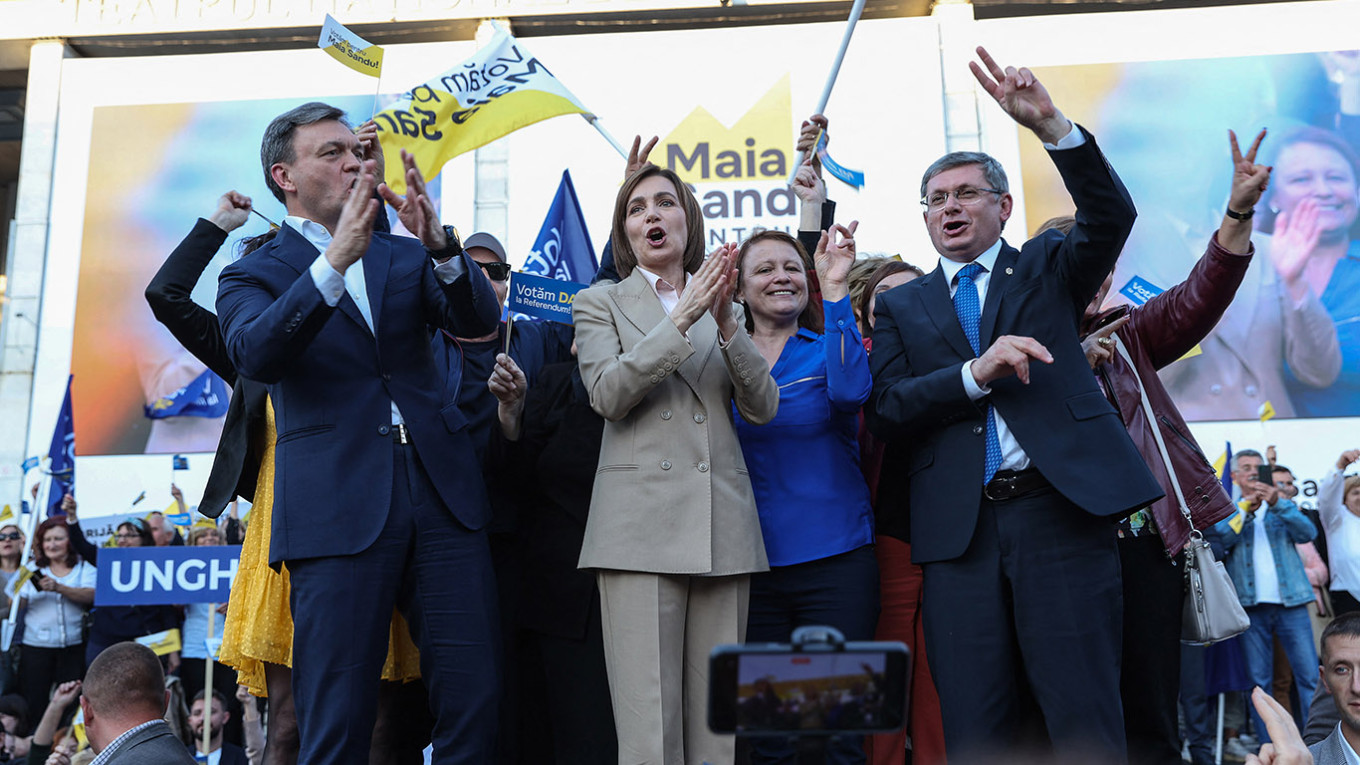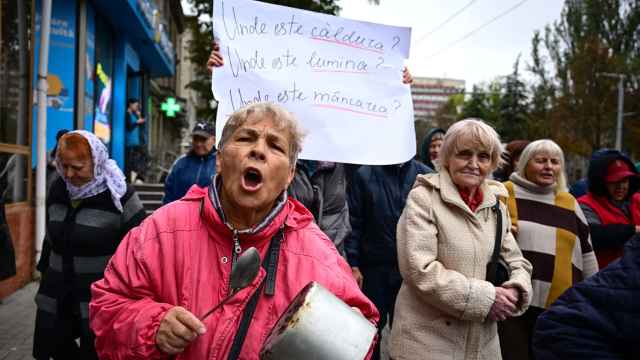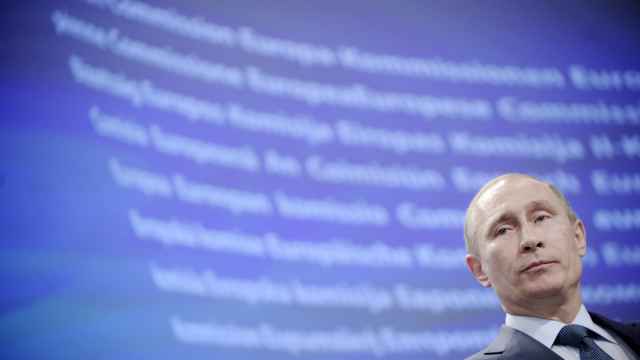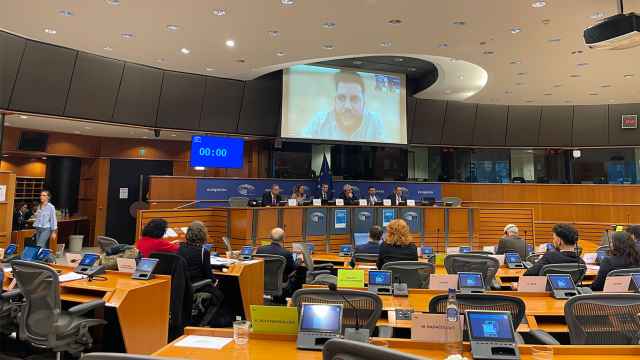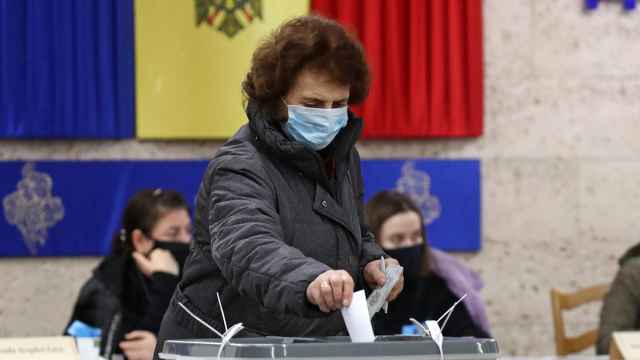Moldovan police carried out dozens of raids Thursday after discovering that at least $15 million was transferred from Russia to Moldovan citizens in an "unprecedented" effort to tamper with presidential elections this month.
Moldova's pro-European President Maia Sandu, who is seeking a second term, has repeatedly accused Russia of political interference in the country, which lies between war-torn Ukraine and EU member Romania.
A total of $15 million was transferred from Russia to Moldovan citizens in September alone, police chief Viorel Cernauteanu said at a press conference.
More than 100,000 people with the right to vote were thought to be involved in the vote-buying scheme, Cernauteanu said.
Police raided 25 locations over what he called an "unprecedented" and "large-scale phenomenon... to disrupt the electoral process."
The money was funneled into the country of 2.6 million by people affiliated with Ilan Shor, a fugitive businessman and former politician, police said.
People affiliated with his “criminal organization” recruited 70,000 sympathizers to cast their ballots for a specific candidate in exchange for money. Voters were also told to reject joining the European Union in a referendum set for October 20, the same day as the presidential elections.
Shor, who was convicted of fraud in absentia last year, said in a Telegram post that “all payments are legal.” “Moldova has finally turned into a police state,” he added, calling on supporters to “continue the fight together”.
In April, Shor announced, from Moscow, the creation of a political coalition called "Victory" with other pro-Russian activists.
However, the Moldovan electoral commission refused to register the Victory bloc for the presidential elections and referendum, citing several non-compliance issues.
Moldovan police also seized about $1 million of what they called "illegal political financing" from people returning from the April gathering.
In June, the United States, Britain and Canada warned of a Russian "plot" to influence Moldova's presidential elections and "incite protests" if a pro-Russian candidate failed to win.
A Message from The Moscow Times:
Dear readers,
We are facing unprecedented challenges. Russia's Prosecutor General's Office has designated The Moscow Times as an "undesirable" organization, criminalizing our work and putting our staff at risk of prosecution. This follows our earlier unjust labeling as a "foreign agent."
These actions are direct attempts to silence independent journalism in Russia. The authorities claim our work "discredits the decisions of the Russian leadership." We see things differently: we strive to provide accurate, unbiased reporting on Russia.
We, the journalists of The Moscow Times, refuse to be silenced. But to continue our work, we need your help.
Your support, no matter how small, makes a world of difference. If you can, please support us monthly starting from just $2. It's quick to set up, and every contribution makes a significant impact.
By supporting The Moscow Times, you're defending open, independent journalism in the face of repression. Thank you for standing with us.
Remind me later.


